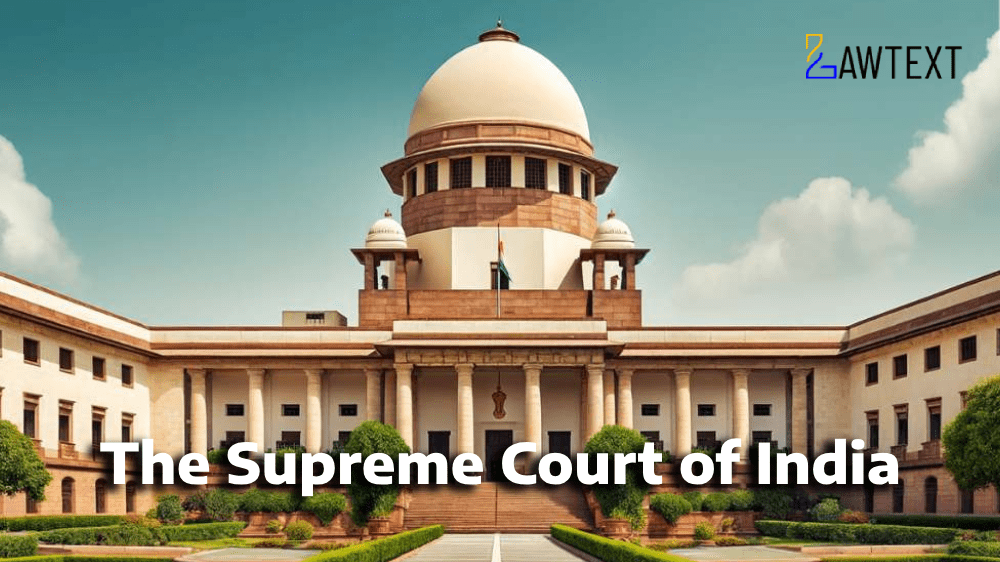CASE NOTE & SUMMARY
Divorce – Mental Cruelty – False Accusations – Standard of Proof: The Court affirmed the divorce decree, holding that false allegations of fraud, dowry harassment, and an extramarital affair with a friend’s wife constituted mental cruelty (Para 8). The appellant-wife accused the respondent-husband of financial fraud and attempted to declare the marriage null and void in a previous case, which was dismissed. Her failure to substantiate these claims proved the falsity of allegations (Para 8). Accusations made during cross-examination regarding an extramarital affair, without any pleadings, amounted to character assassination and cruelty (Para 6). The Family Court correctly applied the legal principles, and the High Court did not err in affirming the findings (Para 8).
Maintenance – Financial Status – One-Time Settlement: The Court observed that both parties had conflicting claims regarding the respondent's financial condition (Para 18). The respondent failed to disclose his complete assets and sources of income, showing reluctance to provide financial support to the appellant-wife (Para 19). The appellant's claim of earning ₹2,00,000/- from a salon was unsubstantiated, and the Court considered it an exaggeration (Para 19). To balance equity, the Court awarded ₹10,00,000/- as a one-time settlement (Para 20). The respondent was directed to pay the amount within three months, covering all pending and future maintenance claims (Para 20).
Irretrievable Breakdown of Marriage – Article 142 – Divorce Upheld: The Supreme Court recognized irretrievable breakdown of marriage as a valid ground for divorce under Article 142 (Para 15). The parties stayed together for only two months post-marriage and had no intention of reconciliation (Para 15). The husband had already remarried, and mediation between the parties failed (Para 10). Since both parties agreed to the divorce, the Court found no reason to interfere with the decree (Para 15).
Acts and Sections Discussed:
- Constitution of India, 1950 – Article 142
- Hindu Marriage Act, 1955 – Section 13 (Grounds for Divorce)
- Family Courts Act, 1984 – Section 6 (Jurisdiction)
- Specific Relief Act, 1963 – Section 34 (Declaratory Relief)
- Code of Criminal Procedure, 1973 – Section 125 (Maintenance)
Subjects:
Divorce – Mental Cruelty – Maintenance – One-Time Settlement – False Allegations – Irretrievable Breakdown of Marriage
Facts:
1. Nature of the Litigation
- The appellant-wife challenged the decree of divorce granted by the Family Court, Nagpur, which was upheld by the High Court of Judicature at Bombay (Nagpur Bench).
2. Who Approached the Court and For What Remedy?
- The appellant-wife sought to set aside the divorce decree and claim maintenance, while the respondent-husband defended the divorce decree and opposed financial claims.
3. Reason for Filing the Case
- The respondent-husband filed for divorce on grounds of cruelty and desertion, alleging that the appellant had falsely accused him and his family of fraud, dowry harassment, and attempted to force him to live separately.
4. What Had Already Been Decided Until Now?
- The Family Court granted divorce on grounds of cruelty but dismissed the claim of desertion.
- The High Court affirmed the divorce decree, stating that the appellant failed to substantiate allegations of fraud.
- The Supreme Court referred the matter for mediation, which failed.
Issues:
a) Whether the appellant-wife committed mental cruelty against the respondent-husband?
b) Whether the divorce decree was justified and legally sustainable?
c) Whether the appellant was entitled to maintenance and financial relief post-divorce?
Submissions/Arguments:
-
Respondent-Husband:
- The appellant falsely accused him of dowry harassment and extramarital affairs, causing mental cruelty.
- She attempted to force him to abandon his family and live separately.
- He had already remarried, making reconciliation impossible.
-
Appellant-Wife:
- She denied allegations of cruelty and claimed that she was mistreated.
- She argued that the respondent had an illicit relationship and misrepresented his financial status.
- She sought a substantial financial settlement, citing the respondent’s alleged income sources.
Question of Law:
- Whether the decree of divorce granted by the Family Court and upheld by the High Court was legally justified?
- Whether false accusations of dowry harassment, extramarital affairs, and fraud constitute mental cruelty under Section 13 of the Hindu Marriage Act, 1955?
- Whether the wife was entitled to maintenance after the dissolution of marriage despite the allegations of cruelty?
- Whether the concept of irretrievable breakdown of marriage can be applied for granting divorce under Article 142 of the Constitution of India?
Decision:
a) The Supreme Court upheld the divorce decree, recognizing the irretrievable breakdown of marriage (Para 15).
b) The Court held that the appellant levied false accusations, which amounted to mental cruelty (Para 8).
c) The Court noted discrepancies in the respondent’s financial disclosures and awarded a one-time settlement of ₹10,00,000/- to the appellant-wife as permanent alimony (Para 20).
d) The respondent-husband was directed to pay the amount within three months (Para 20).
Ratio Decidendi:
- Mental cruelty includes false accusations of extramarital affairs (Para 6).
- Forcing a spouse to separate from family constitutes cruelty (Para 8).
- Irretrievable breakdown of marriage is a valid ground for divorce (Para 15).
- Maintenance must be awarded based on the financial capacity of the husband (Para 16).
Final Order:
- Appeal partially allowed – Divorce decree upheld, and one-time settlement granted (₹10,00,000/-).
- Pending applications disposed of.
Citation: 2025 LawText (SC) (1) 311
Case Number: CIVIL APPEAL NO. OF 2025 (SLP (C) NO.24893 OF 2018)
Date of Decision: 2025-01-31
Case Title: SAU. JIYA VERSUS KULDEEP
Before Judge: [VIKRAM NATH J. , PRASANNA B. VARALE J.]
Appellant: SAU. JIYA
Respondent: KULDEEP

